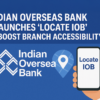Amit Goel, CEO of Pace 360, illuminates booming Indian wealth management amid rising high-net-worth individuals.

Amit Goel advocates for a ‘macro top-down’ approach, emphasizing the importance of analyzing the big picture. This entails evaluating the macro-economic cycle across various asset classes, geographies, and sectors to identify promising investment opportunities.
The post-2008 era has been a period of significant growth, particularly in equities. Goel suggests this cycle might be nearing its conclusion. This perspective is shared by sophisticated investors who are de-risking their portfolios – reallocating assets to mitigate potential losses during a potential downturn. This strategy involves taking profits off the table and increasing allocations towards fixed income and precious metals, which have traditionally served as hedges against inflation and market volatility.
Investing Beyond Borders
Goel points out to growing interest in alternative investments like cryptocurrencies, fractional real estate ownership through tokenization, and private equity. While acknowledging the nascent stage of these asset classes in emerging markets like India, he recognizes their potential for future growth, especially as regulatory frameworks develop.
For Indian investors seeking global diversification, exchange-traded funds (ETFs) listed on Indian exchanges offer convenient access to international assets. These instruments eliminate the need for currency conversion and allow participation in diverse markets. However, some family offices utilize alternative channels like the Liberalized Remittance Scheme (LRS) rule or offshore structures to invest directly in global stocks, real estate, and private equity.
Future Cornerstones
Wealth management is undergoing a digital revolution. Advanced software tools and data processing capabilities empower advisors to analyze vast amounts of information efficiently. This real-time data analysis enables informed decision-making and minimizes human error in portfolio management.
The industry is also witnessing a shift towards a fee-based advisory model. This eliminates the conflict of interest inherent in the traditional commission-based structure, where advisors might prioritize products with higher commissions over those best suited for the client’s needs. Fee-based models ensure advisors prioritize the client’s best interests, as their compensation is directly tied to the client’s assets under management (AUM).
Looking Ahead
By understanding the macro-economic landscape, adopting a holistic investment approach that considers both traditional and emerging asset classes, and leveraging technology, Indian investors can position themselves to capitalize on emerging opportunities and achieve their long-term financial goals. Transparency and a data-driven approach will be paramount in building trust and empowering investors to make informed decisions about their wealth creation journey. As the wealth management industry evolves, investors who embrace these trends will be well-equipped to navigate the exciting opportunities that lie ahead.
Read more:









